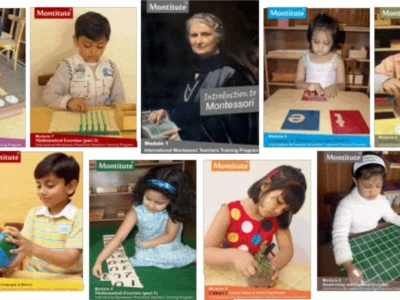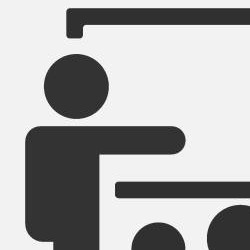Montesori Education
Dr. Maria Montessori, the founder of Montessori education, was Italy’s first female doctor and one of the most influential educators of all time. As a medical professional, her scientific approach led her to observe children closely, revealing their unique developmental and learning needs.
Dr. Montessori discovered that traditional education often conflicts with children’s natural growth patterns, hindering both mental and physical development. She believed that conventional methods were restrictive and failed to support the holistic development of the child.
In 1907, she opened her first Casa dei Bambini (House of Children) in Rome. Like a scientist, she observed her students, creating educational materials and teaching strategies that aligned with their natural curiosity and desire to learn. After two decades of refinement and testing, Dr. Montessori introduced what is now known as the Montessori System of Education—a method she believed could transform humanity.
Dr. Montessori’s groundbreaking work earned her global recognition. She represented Italy at numerous international conferences and was nominated three times for the Nobel Peace Prize. Her image appeared on Italy’s 1000 Lire note and 200 Lire coin, a testament to her lasting influence.
Leaders, educators, scientists, and scholars praised her innovative methods, which continue to shape education worldwide. Today, thousands of schools follow the Montessori education system, which, even after more than 100 years, remains a superior educational approach, consistently validated by modern research. Dr. Montessori was truly “a woman ahead of her time.”
Key Points:
· The Montessori system of education was created by Dr. Maria Montessori, an Italian doctor who later became an educator.
· She used the scientific method, which includes observation, hypothesis, and experimentation, to study the developmental and educational needs of children. This approach is also known as scientific pedagogy.
· Dr. Montessori recognized that young children are naturally inclined towards concrete experiences, so she developed numerous hands-on materials to address their educational and developmental requirements.
· Montessori Training programs focus on equipping teachers with the skills to effectively utilize these Montessori materials in the classroom. Montessori education is popular as an alternative to traditional schooling for homeschooling parents and private schools.
· Unlike conventional schools with diverse curricula, Montessori schools follow a standardized curriculum worldwide. Instead of textbooks, only the scientifically designed concrete materials developed by Dr. Maria Montessori are used for teaching.
· Rather than whole-class or large group lessons, individual one-to-one presentations are conducted only with the learner’s consent.
· Unlike traditional schools where the teacher plans the day’s activities, in Montessori schools, learners have the freedom to choose their activities. Each student decides which material to work with and for how long.
· Schooling takes place in mixed-age groups, with learners in one classroom to promote improved socialization and learning from one another. For example, children aged 3 to 6 years work together in one classroom.
· The curriculum also covers additional developmental needs of learners, including subjects such as Sensory Training, Practical Life Skills for maintaining and restoring everyday life, and peace education.
Our Montessori Courses
Join one of the following courses to learn more.


